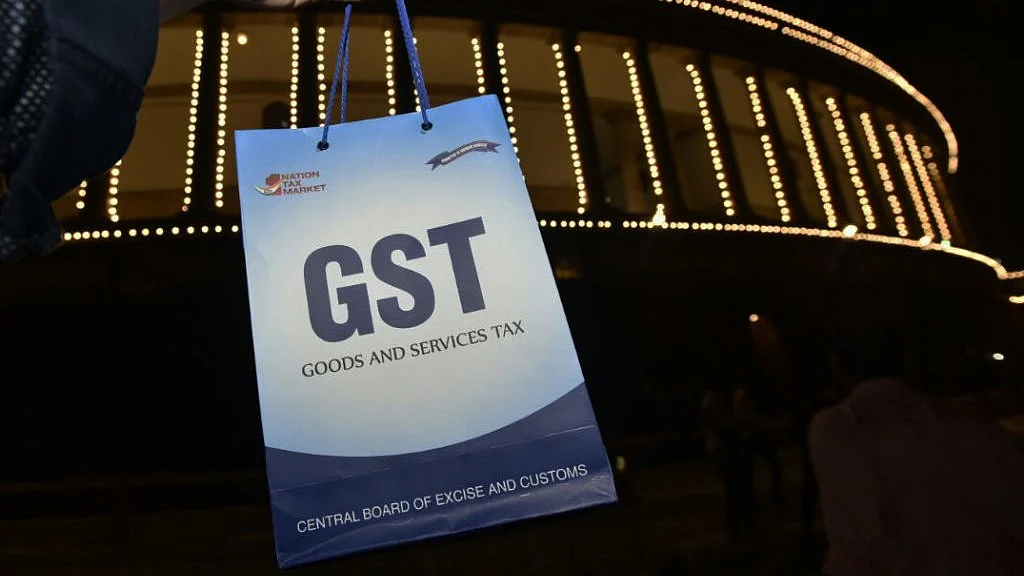States alarmed as Centre glosses over GST compensation, pushes 'savings festival'
Non-BJP ruled states question lack of compensation and fiscal strain caused by revenue loss. centralised control

A nationwide narrative of an officially proclaimed 'GST savings festival' is widely being promoted, with Union ministers, chief ministers of BJP-ruled states, and party leaders visiting marketplaces to highlight the benefits of recent Goods and Services Tax (GST) rate reductions. The Prime Minister has claimed in speeches that these changes will help citizens save up to Rs 2.5 lakh crore annually.
However, largely missing from this celebratory narrative is any discussion of how states will be compensated for the revenue losses resulting from these tax cuts.
It has now emerged that during the GST Council meeting where these rate changes were approved, there was no discussion on compensating states for their potential revenue losses.
Both Kerala and Telangana have publicly revealed that although the agenda for the 3 September meeting of the GST Council included the issue of compensation, it was removed from discussion during the proceedings.
Speaking at an event hosted by The Hindu in New Delhi, Telangana deputy chief minister Bhatti Vikramarka Mallu and Kerala finance minister K.N. Balagopal said eight states — including their own — had met ahead of the meeting to voice concern over the potential impact of the rate cuts and had agreed to raise the issue of compensation.
“In fact, the question of compensation was on the agenda, but it was not taken up for discussion,” said Balagopal. “We gave our speeches, we made our comments, but no conversation took place on what could be done about the compensation cess.”
The finance ministers of both Telangana and Kerala, who are also GST Council members, said the GST regime has made states increasingly dependent on the Centre while also reducing their ability to raise their own revenue for developmental expenditure.
Reading between the lines
Speaking about the fiscal imbalance between the Centre and states, Mallu noted, “The Government of India had assured states they would receive 14 per cent tax growth compared to the pre-GST era, when collections were around 14–18 per cent. But by the end of the compensation period, forget 18 per cent — they couldn't even maintain 14 per cent. The actual growth has been around 7–8 per cent.”
He added that despite states bearing the majority of public spending, the Centre retains the bulk of the revenue.
Balagopal supported this view, citing figures from the 15th Finance Commission. “According to the report, about 64 per cent of total government expenditure in India is incurred by state governments,” he said. “At the same time, 63 to 64 per cent of total revenue goes to the Union. So, two-thirds of the spending is done by states, but two-thirds of the revenue goes to the Centre.”
Both ministers criticised the way the Centre has further tilted this imbalance by increasing reliance on cess collections. Although the Finance Commission recommended that 41 per cent of the Centre’s revenue be shared with states, nearly 20 per cent of its earnings come from cesses — which are not required to be shared. As a result, only about 30–32 per cent of the total central taxes are effectively being passed on to the states.
Balagopal also raised concerns about the decision-making process behind the latest GST rate cuts. He stated that the committee responsible for determining GST rates typically receives detailed analytical reports before implementing any changes. However, in this instance, no such report was presented.
“I have been on the GST rate-setting committee for the past three to four years,” he explained. “Normally, detailed studies and reports are shared before decisions are made. This time, there was no such analysis — only a suggestion from the Centre. So, no thorough examination was done.”
He added that there is still no clear picture of the total loss states may face. “We calculated that Kerala alone could lose around Rs 8,000–10,000 crore in revenue,” Balagopal said. “Each state has its own estimates. As of now, there is no consolidated national picture available.”
Note: This report was first published in Navjivan. This is a translated version.
Read this report in Hindi here
Follow us on: Facebook, Twitter, Google News, Instagram
Join our official telegram channel (@nationalherald) and stay updated with the latest headlines
